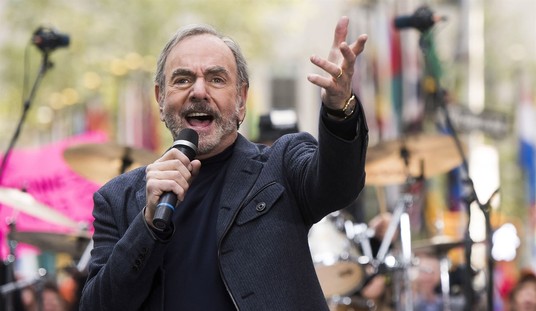Sometimes, you have to wonder whether reporters actually pay attention to people they cover in the media. One of the chief funders of the progressive wing in American politics, currency speculator extraordinaire George Soros, may make his money in the free market — but the entire thrust of his politics has been towards statism. Soros, after all, pledged $5 million to the single-payer advocate group HCAN earlier this year, which would eliminate the free market in health care that currently exists in the US. It hardly comes as a surprise that Soros also wants more state control over energy production and commodities trading, but ABC News reports Soros’ support for caps on energy-commodity trading as some sort of crossover endorsement:
Commodities investing among institutions looking to diversify their huge portfolios became increasingly popular around the start of this past decade. Even some free market capitalists, such as George Soros, say this was a chief reason for booming commodities prices over the last ten years.
Soros has hardly been a Milton Friedman free-market capitalist. He has pushed for increasing government control over products, services, and commodities. Having George Soros back increased government control of commodities trading is about as surprising as learning that water is wet.
Beyond that, though, the policy of imposing caps and limitations on commodities trading in energy futures has a long and inglorious history. Like most of the economic debacles in the US, we already tried this in the 1970s, to bad results:
The Commodities Futures Trading Commission will soon announce an official proposal to curb speculation through new rules called Position Limits, caps on how big a bet any given Wall Street player can make in the energy futures markets. The proposal could come in the next few weeks, several senior industry members told ABC News.
If such new rules are eventually adopted, they could either keep energy prices in check, or unintentionally drive them up, depending on whose opinion you ask. That includes both prices at the pump and prices for home heating oil. …
“Large pools of money that want to invest in commodities are going to find a way to do so, no matter what the rules are,” he said. “Russia, China, the Middle East, all or any of those countries could use this as an opportunity to take control of oil trading which has been centered in New York. Putting limits on how much speculation any given market participant can engage in will only, I’m afraid, drive prices higher and create less transparency.”
That’s because, [Phil Flynn, a widely followed energy analyst at PFG Best Research in Chicago] argues, regulations in the U.S. could send speculators to overseas markets that put no limits on how large a position a paper trader can take. He says something like that happened in the 1970s, when the Nixon administration imposed price caps on oil after the OPEC embargo. Producers, viewing oil prices as artificially low, held back supply because they weren’t getting a fair price, in turn leading to shortages, gas rationing and long lines at the pump, Flynn said.
When Reagan took office, he dismantled the overgrowth in regulation that strangled oil production. Since that time, we have not had to deal with gas lines and rationing, since the price-supply relationship returned to rationality. The Obama administration, which views free-market economics as a hostile foreign language even in the best of times, proposes a return to the system that produced shortages and economic disruption.
As Flynn explains in ABC’s piece, speculation exists to help consumers hedge against price shocks in the market. It forces producers to consider their output and helps to balance some of the cartel behavior already found in OPEC. Pushing the market overseas will give OPEC more power to dictate to consumers, not less, and make the US more vulnerable and dependent on its trading partners than ever before.
Some people might like that idea as a way to force the US into higher energy costs for other agendas, especially the global-warming activists, as well as those who would like to see the US become less of an economic leader for the free world. That would include George Soros, too.








Join the conversation as a VIP Member